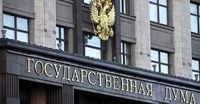Significant changes are set to take place in Russia regarding social welfare support, particularly for families with children and pregnant women. Starting May 15, 2025, the government will revise the regulations governing the assignment of monthly payments aimed at supporting families. These changes, announced by the President, are designed to enhance the availability of benefits, making it easier for families who were previously denied assistance to qualify for support.
The main updates to the rules include a reduction in the calculation period for determining average per capita income, from the current 12 months to just 3 or 6 months. This adjustment is particularly crucial for families who have recently experienced a drop in income due to job loss, illness, or other unforeseen circumstances. By shortening the calculation period, families can apply for the allowance without waiting for their average annual income to fall below the eligibility threshold.
For example, consider a family of four living in Abakan, where both parents previously earned a combined monthly income of 80,000 rubles. Following a job loss, their total income drops to 40,000 rubles. Under the existing rules, their annual income would be calculated at about 960,000 rubles, resulting in an average per capita income of 20,000 rubles, which exceeds the subsistence minimum of 18,088 rubles in the Republic of Khakassia. Consequently, the family would be denied the single allowance. However, if the calculation period is reduced to three months, their current income of 40,000 rubles per month would result in a total of 120,000 rubles over three months, yielding an average per capita income of 10,000 rubles, qualifying them for support.
The government is also introducing a permissible excess of the subsistence minimum, allowing families whose income slightly exceeds this threshold to retain their eligibility for benefits. The specific percentage of this permissible excess will be determined after May 15, 2025.
Another significant change is the exclusion of personal income tax (NDFL) from the income calculation. Currently, family income is assessed before tax deductions. The new regulation will consider only the net income after tax, which will lower the effective income used to determine eligibility for assistance. For instance, a woman from Murmansk, registered for early pregnancy care, currently earning the minimum wage of 22,440 rubles, would see her taxable income reduced to 19,522 rubles after accounting for the 13% NDFL. This adjustment could allow her to qualify for the single payment, as her net income would be below the subsistence minimum of 27,675 rubles for able-bodied individuals in the Murmansk region.
The size of the single allowance will remain unchanged, calculated as 50%, 75%, or 100% of the subsistence minimum, depending on the family's income relative to this benchmark. The lower the family's income, the higher the percentage of support they can receive.
These new regulations will apply to all families eligible for the single allowance, including pregnant women who register early and parents, guardians, and caregivers of children under 17 years old. Applications for the allowance can be submitted through the "Gosuslugi" portal, at MFC offices, or via personal accounts on the Social Fund of Russia's website.
In addition to changes in family assistance, the government is also addressing pension benefits. Starting in May 2025, pensions will be increased for miners and flight crew members, with the amount of the increase depending on the length of service. Specifically, individuals with 25 years of service in aviation or coal mining will see adjustments to their pensions. Furthermore, pensioners over the age of 80 and those classified as disabled will receive an additional monthly allowance of 8,907.7 rubles.
In a move to enhance accountability, the Federal Bailiff Service is creating a separate registry for individuals who fail to pay alimony. This registry will include those who have faced administrative or criminal charges for non-payment or who have been declared wanted. The details of these cases will be publicly accessible until the debts are fully repaid. The service will also collaborate with other government departments to monitor the employment status of these individuals, facilitating timely collection of alimony payments.
On the data protection front, the government plans to impose stricter penalties for breaches of personal data security. Fines for legal entities could reach up to 15 million rubles, depending on the severity of the violation. In cases of repeated offenses, fines may amount to 3% of a company's revenue. Additionally, new administrative liabilities will be introduced for organizations that refuse to provide services or enter into contracts with individuals who do not consent to biometric identification.
As part of these reforms, mandatory labeling of grocery products will commence on May 1, 2025. This initiative requires manufacturers and importers to apply Data Matrix codes to their packaging and share information with the "Honest Sign" system. Initially, the labeling will focus on snacks such as chips, crackers, and popcorn, expanding to include sauces and spices by July 1, 2025. This labeling effort aims to combat the illegal sale of food products, allowing consumers to verify the legality of items through the "Honest Sign" application.
Overall, these comprehensive reforms signal the government’s commitment to improving social welfare support and ensuring greater accountability in various sectors. As families prepare for these changes, the hope is that the new measures will provide essential assistance to those who need it most.

